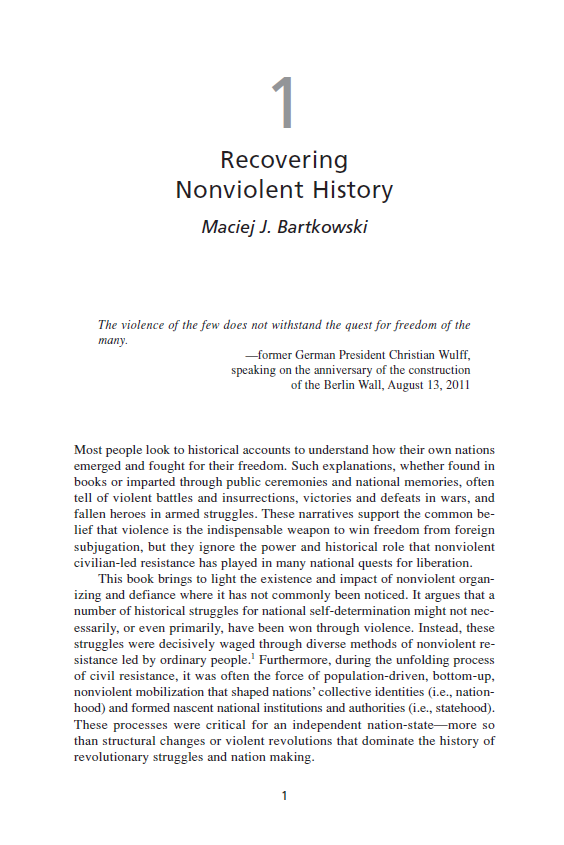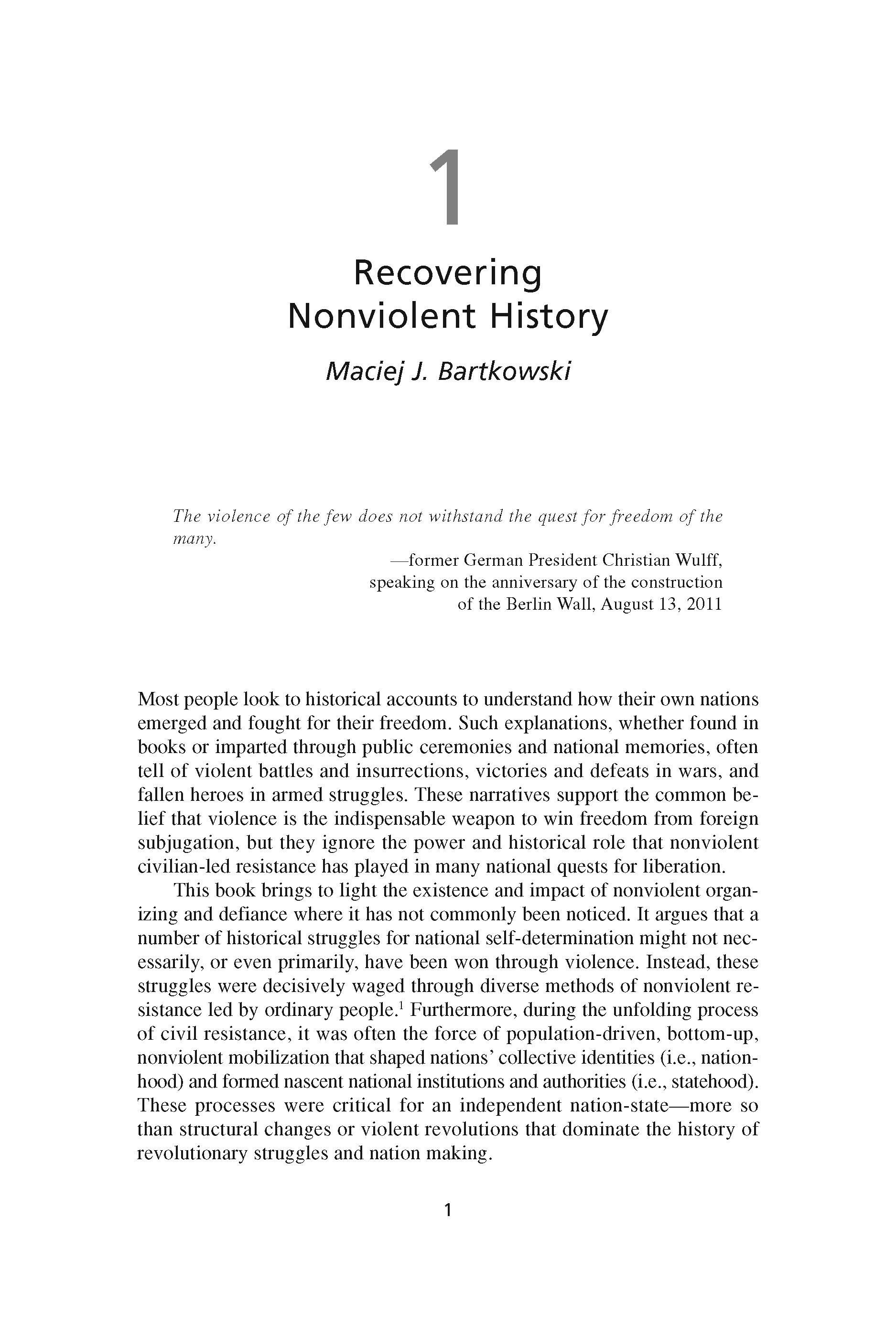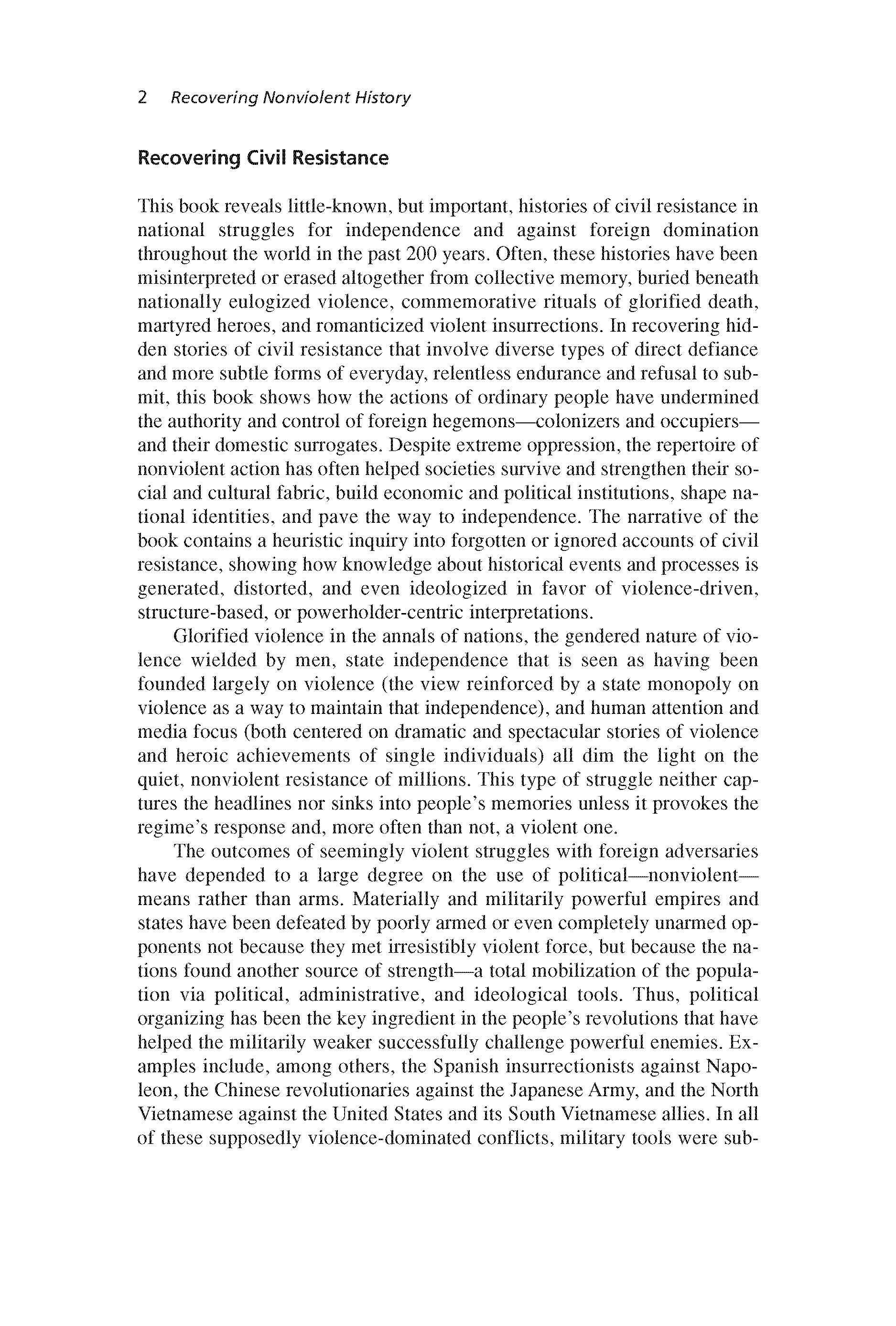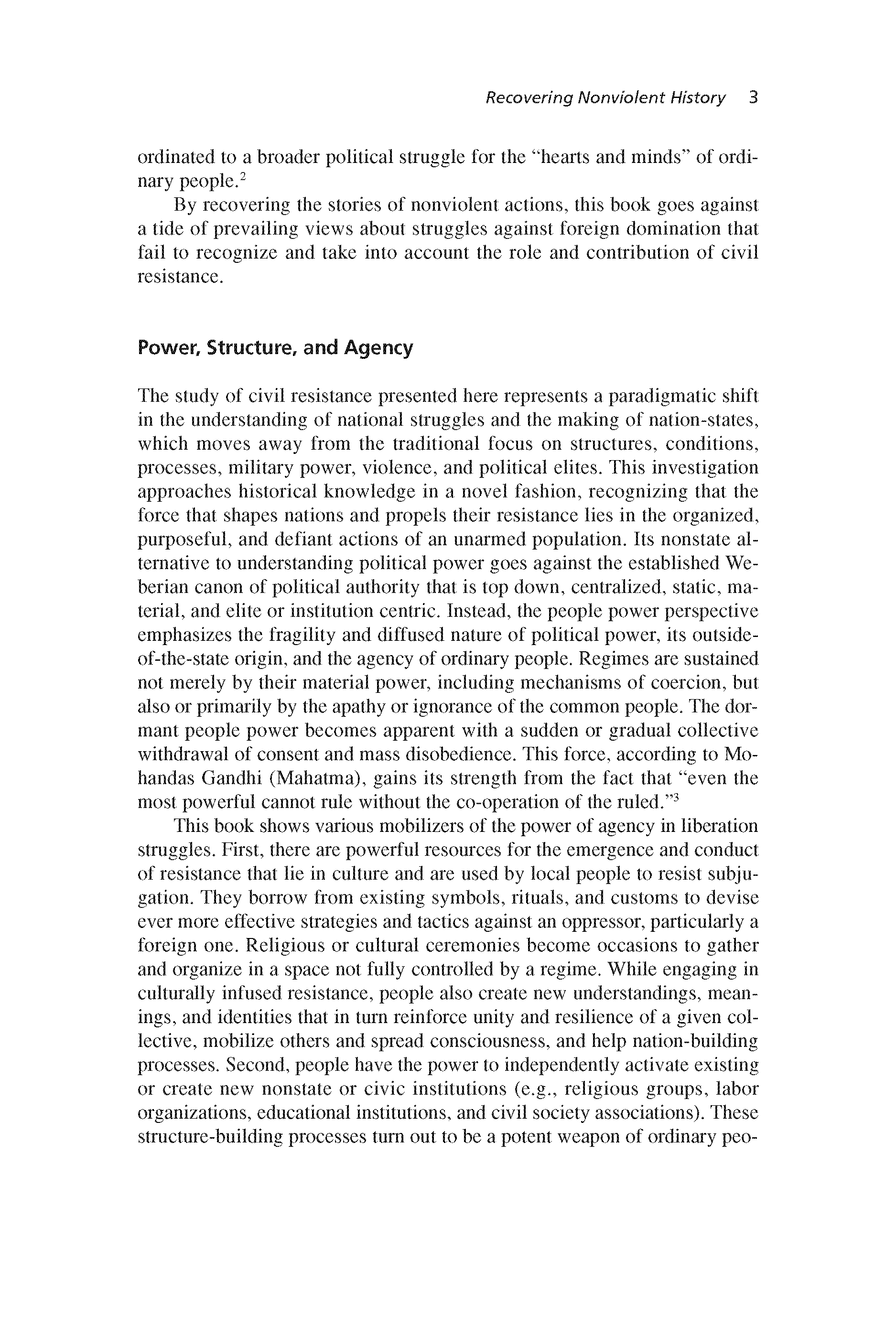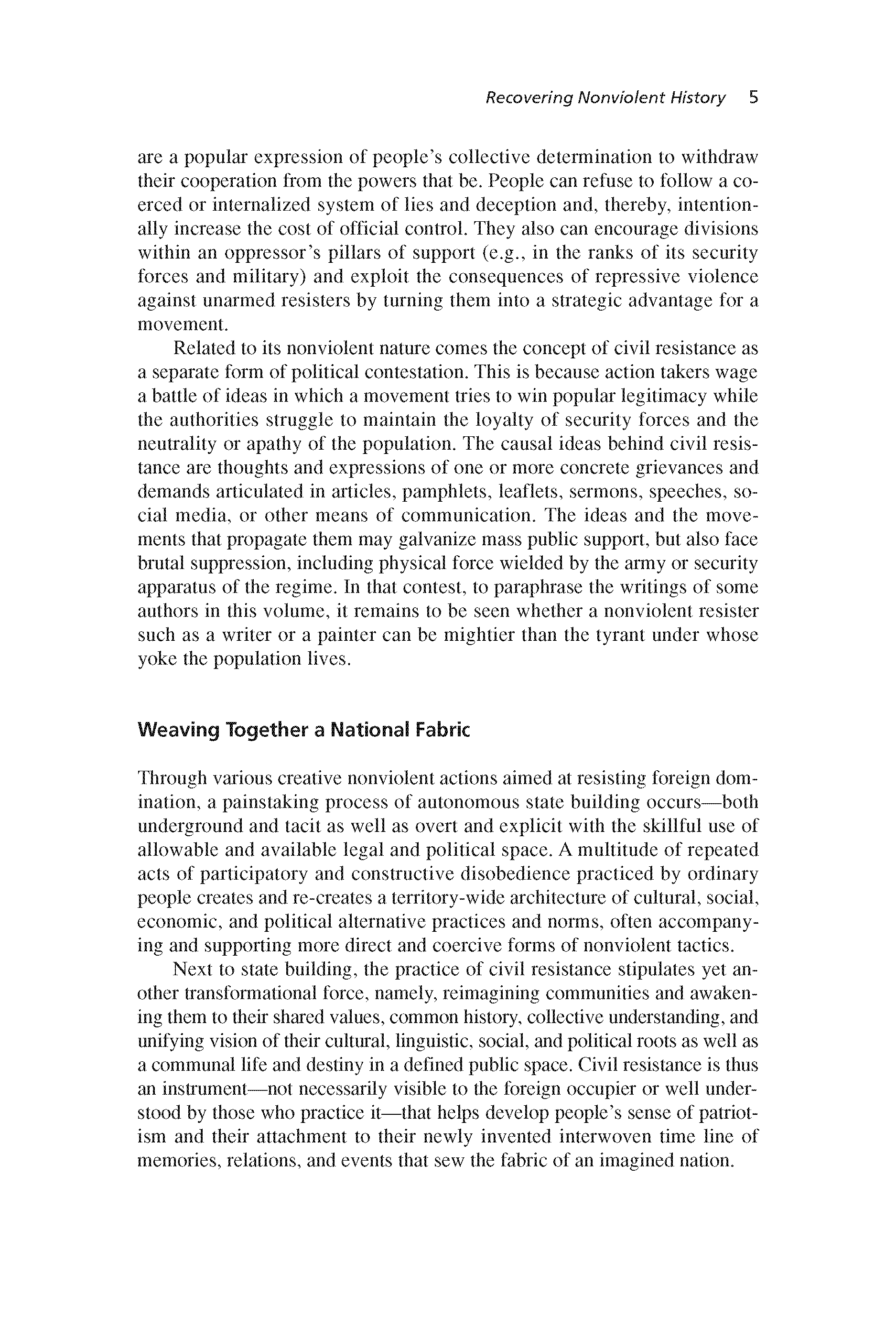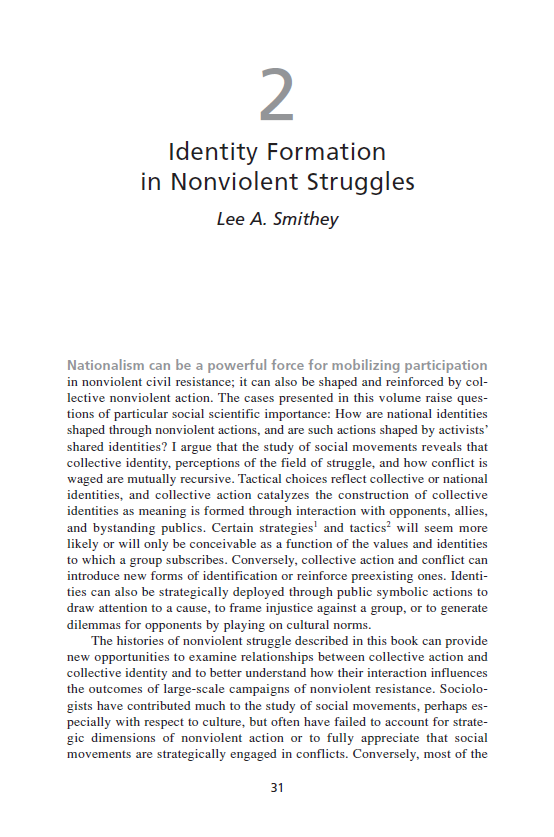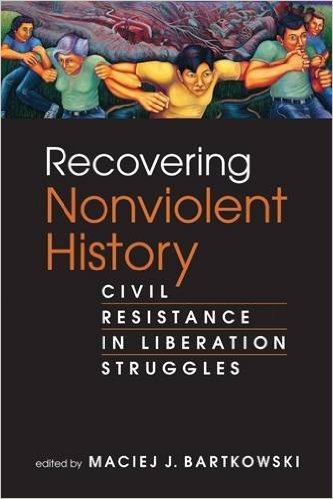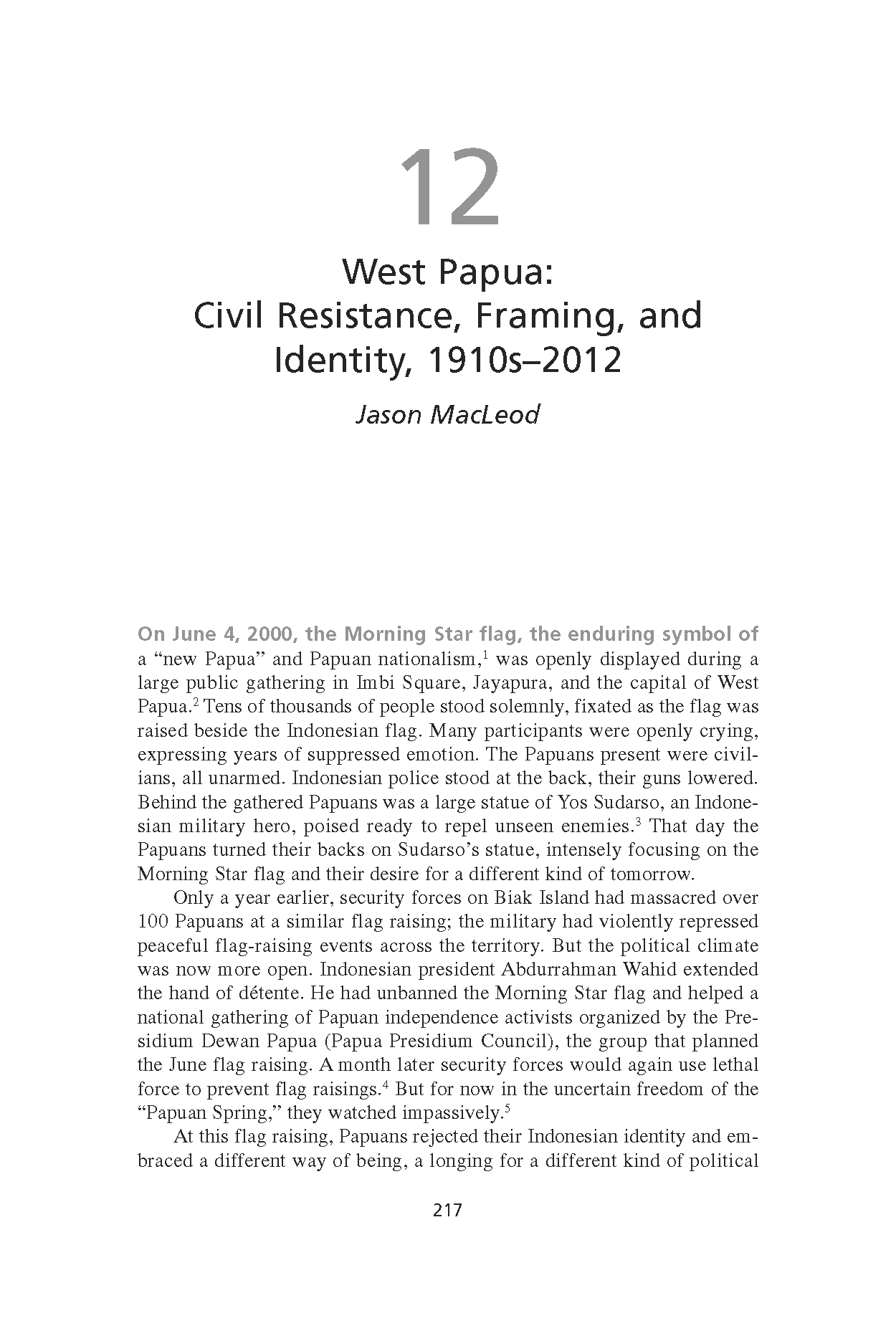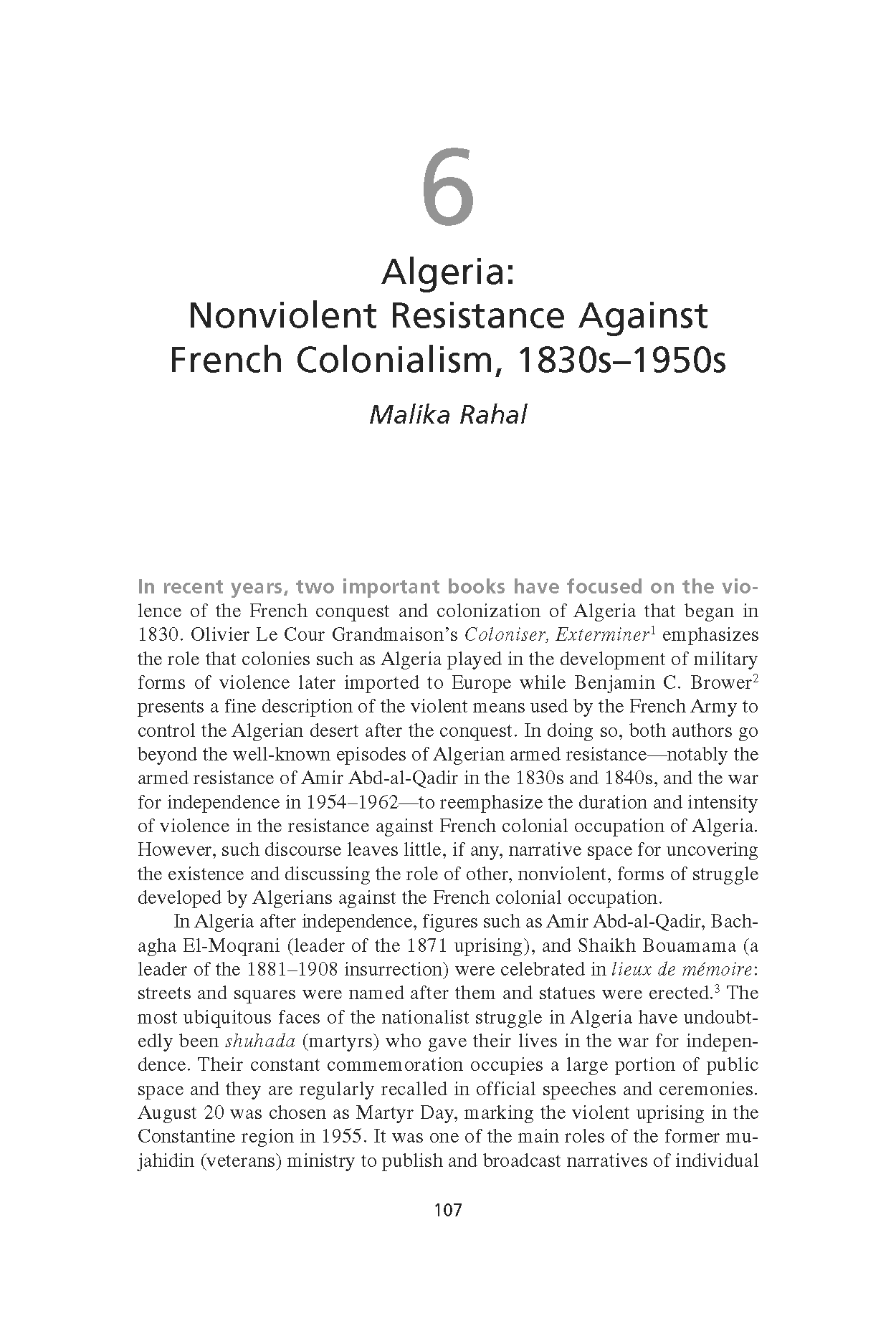Recovering Nonviolent History (Chapter 1 from ‘Recovering Nonviolent History’)
Most people look to historical accounts to understand how their own nations emerged and fought for their freedom. Such explanations, whether found in books or imparted through public ceremonies and national memories, often tell of violent battles and insurrections, victories and defeats in wars, and fallen heroes in armed struggles. These narratives support the common belief that violence is the indispensable weapon to win freedom from foreign subjugation, but they ignore the power and historical role that nonviolent civilian-led resistance has played in many national quests for liberation […]
From the book ‘Recovering Nonviolent History: Civil Resistance in Liberation Struggles‘, 2013

